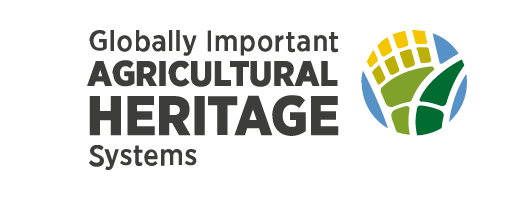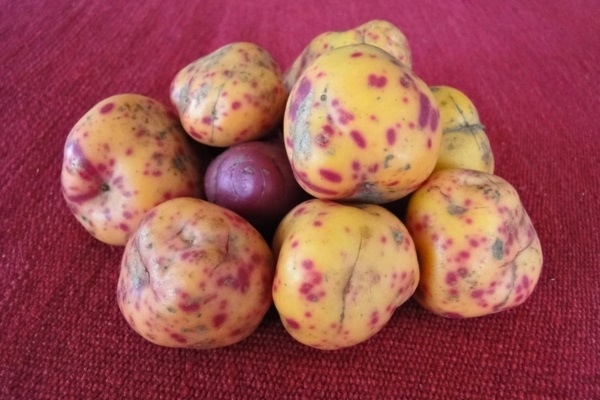Montado Agrosilvopastoral System of the Serpa Hills, Portugal
GIAHS since 2025
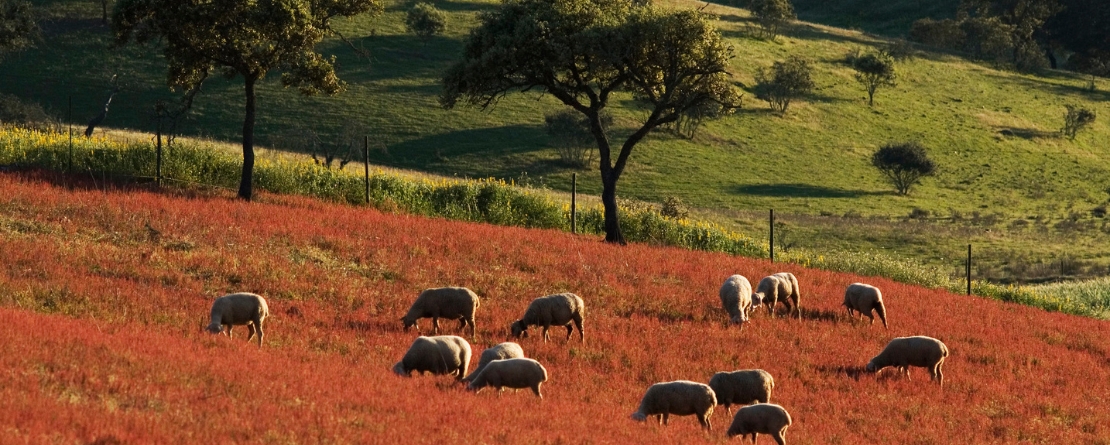
Photo courtesy of: GIAHS Montado Agrosilvopastoral System of the Serpa Hills
In southern Portugal, the Montado da Serra de Serpa stands out as one of Europe’s oldest agrosilvopastoral systems, where cork and holm oak woodlands are managed with remarkable ecological awareness. Through low-intensity and extensive grazing, dryland farming, and forest stewardship, communities have shaped a multifunctional landscape that conserves biodiversity, sustains rural economies, and embodies a Mediterranean model of climate resilience and land restoration.
Key Facts
- Municipality of Serpa, Alentejo region, Portugal
It is home to rich wild fauna with over 120 bird species, forests mushrooms, and threatened species such as the Iberian lynx and black vulture
Tree cover reduces erosion, enhances water retention, and stores carbon in soils and biomass
Integrates cork and holm oaks with cereals, legumes, pastures, beekeeping, and extensive grazing of sheep and goats
Generates income from cork, meat, honey, herbs, mushrooms, and nature tourism
Maintains seasonal herding, traditional pruning and harvesting, and communal land use rooted in local identity
A mosaic of open woodlands, stone walls, dry fields, and temporary watercourses shaped by centuries of co-adaptation
Recognized within the EU as a High Nature Value farming system, a designation given to low-intensity agricultural landscapes that support high biodiversity and contribute to climate and conservation goals.
Preserves local breeds, seasonal transhumance, pruning and harvesting practices, and oral traditions linked to shepherding and land stewardship
Supports family-based economies through diversified production, small-scale processing, and rural tourism
Food and livelihood security
The Montado system ensures diversified food and income sources through an intricate balance of forestry activities, pastoralism and crop production. Cork harvesting remains a central economic activity, providing cyclical income every 9 to 12 years, while extensive grazing of sheep and goats supports meat production with low environmental impact. Wild foods—such as mushrooms, medicinal plants, and honey—are gathered seasonally, offering both dietary variety and commercial value. Smallholder horticulture and olive oil production complement household self-sufficiency and reinforce local food systems.
Livelihood strategies in the Montado are closely tied to the seasonal rhythms and multifunctionality of the land. Many rural families combine agriculture with non-farm income, including rural tourism, crafts, and forestry services, making the system socially adaptive and economically resilient. Territorial brands and short supply chains for cork, honey, and meat products foster added value and local identity. These factors contribute not only to income diversification but also to community stability and rural retention, helping counteract the demographic decline of the region.
In times of ecological and market uncertainty, the Montado offers year-round provisioning and risk mitigation thanks to its diversified production base. The integration of forests, fields, and pastures allows land users to shift practices in response to weather conditions, prices, or labor availability. This flexibility enhances household resilience and long-term viability in one of the driest regions of Portugal.
Agrobiodiversity
The Montado da Serra de Serpa is a mosaic landscape shaped by human management that supports both cultivated and wild biodiversity. The tree canopy, dominated by cork (Quercus suber) and holm oak (Quercus rotundifolia), provides habitat to a wealth of lives, shade to grazing animals, and nutrients to the understory composed of native grasses, legumes, and shrubs. They are the result of an ecosystem shaped by centuries of traditional grazing and soil management practices. This layering supports complex ecological interactions and enhances overall system stability.
Traditional crop varieties, including cereals, pulses, and forage, are cultivated in rotation or intercropped with pasture and tree cover, maintaining genetic diversity and adaptive traits suited to semi-arid conditions. Native livestock breeds such as the Serpentina goat and local sheep varieties are integral to the system’s ecology and cultural heritage. Their grazing patterns help control shrub encroachment and promote the regeneration of herbaceous species.
In addition to agricultural diversity, the system supports a high richness of wild flora and fauna, including protected and endangered species such as the Iberian lynx, black vulture, and Bonelli’s eagle. Beekeeping is widespread and benefits from the abundance of aromatic and melliferous plants. The coexistence of domestic and wild biodiversity reflects the ecological integrity of the system and its long-standing role in sustaining genetic resources across species.
Local and traditional knowledge systems
The Montado is managed through deeply rooted ecological knowledge passed down through generations. Montado’s practitioners apply techniques such as rotational grazing, selective pruning, tree regeneration, and the use of firebreaks and stone walls to regulate water flow and protect against erosion. Knowledge of when and how to harvest cork, how to balance grazing pressure, and how to manage multi-use plots is not written, but embedded in everyday practice, observation, and oral transmission.
These practices are shaped by an understanding of seasonal patterns, soil types, and microclimates. Farmers and shepherds follow natural indicators and community calendars to guide planting, foraging, and animal's movements. The timing of cork stripping, for example, is aligned with tree physiology and environmental conditions to ensure long-term health. Water management is supported by traditional wells and landscape features that reduce evaporation in the dry summer months.
Much of this knowledge is shared through communal work events, cooperative labour, and local associations that connect families, neighbours, and generations. These informal learning systems sustain not only technical know-how but also values of reciprocity, mutual care, and land stewardship, reinforcing the continuity of the Montado under changing environmental and socioeconomic conditions.
Cultures, value systems, and social organization
The Montado da Serra de Serpa is more than a production system; it is a cultural landscape deeply tied to identity, tradition, and collective memory. Practices such as seasonal transhumance, cork harvesting rituals, and shepherding festivals are embedded in local culture and mark the passing of time. Oral storytelling, traditional songs, and agricultural celebrations reinforce the connection between people and land and keep alive the intangible heritage associated with rural life.
Land is often managed through shared-use agreements and communal arrangements, which reflect longstanding principles of cooperation and equity. Local associations, grazing councils, and cooperatives coordinate resource use, organize maintenance of infrastructure, and mediate conflicts. These institutions are instrumental in ensuring the collective functioning of the system for a sustainable use of natural resources and in transmitting knowledge and values.
Value systems rooted in respect for nature, intergenerational responsibility, and moderation guide daily decisions in the Montado. This cultural foundation has enabled local communities to maintain long-term ecological balance and resist trends of land abandonment or overexploitation. The result is a vibrant rural society where production, culture, and social organization are tightly interwoven.
Landscapes and seascapes features
The Montado da Serra de Serpa forms a multifunctional landscape shaped by centuries of agrosilvopastoral practices. It is characterized by scattered cork and holm oak trees in open woodlands, interspersed with cultivated fields, grazing areas, dry-stone walls, and riparian corridors. This spatial configuration creates a visually harmonious and ecologically coherent landscape that balances productivity with conservation.
The system’s structure facilitates ecological processes such as nutrient cycling, pollination, and water retention. Trees provide shade for livestock, increase soil organic matter, and reduce evapotranspiration. Seasonal streams and temporary ponds support amphibians and birds, while hedgerows and wooded strips act as corridors for wildlife. Terracing, contour lines, and minimal tillage help retain soil on sloping terrain, preventing erosion.
The mosaic nature of the Montado reflects a long history of land use adapted to the constraints of Mediterranean drylands. Every element of the landscape—from grazing paths to cork plots—is part of a functional network of spaces and practices. This complexity underpins the system’s resilience, beauty, and relevance in the face of climate and ecological challenges.
Proposal
Coming soon!
Multimedia
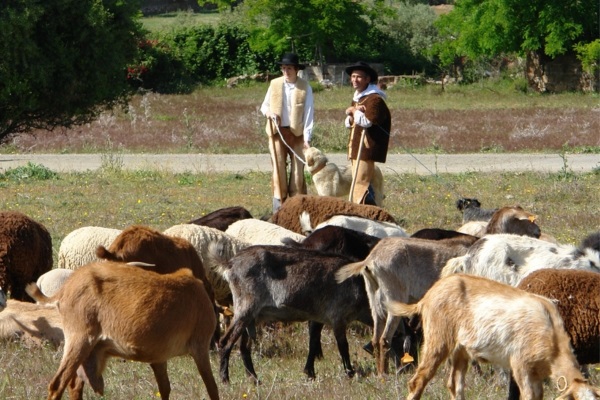
Photos
Flickr Album: Portugal - Montado Agrosilvopastoral System of the Serpa Hills, Portugal
16/05/2025
The Montado system ensures diversified food and income sources through an intricate balance of forestry activities, pastoralism and crop production.
Video
Montado Agrosilvopastoral System of the Serpa Hills, Portugal
08/07/2025
In southern Portugal, the Montado da Serra de Serpa stands out as one of Europe’s oldest agrosilvipastoral systems, where cork and holm oak woodlands...
Highlights
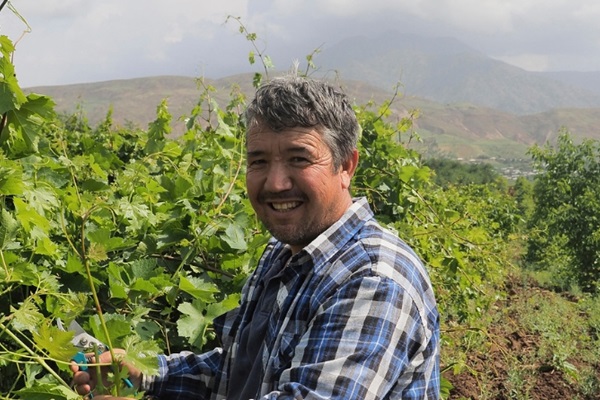
Sites in the Republic of Korea, Portugal and Tajikistan recognized as Globally Important Agricultural Heritage Systems
08/07/2025
17/ 6
2025
Lessons from Japan’s Nationally Important Agricultural Heritage Systems (NIAHS): Insights and Opportunities for the Global Network
Virtual Event, 17/06/2025
Building on the longstanding experience of Japan, this webinar aims to provide a platform for knowledge-sharing among countries interested in establishing or strengthening their own national agricultural heritage systems.

